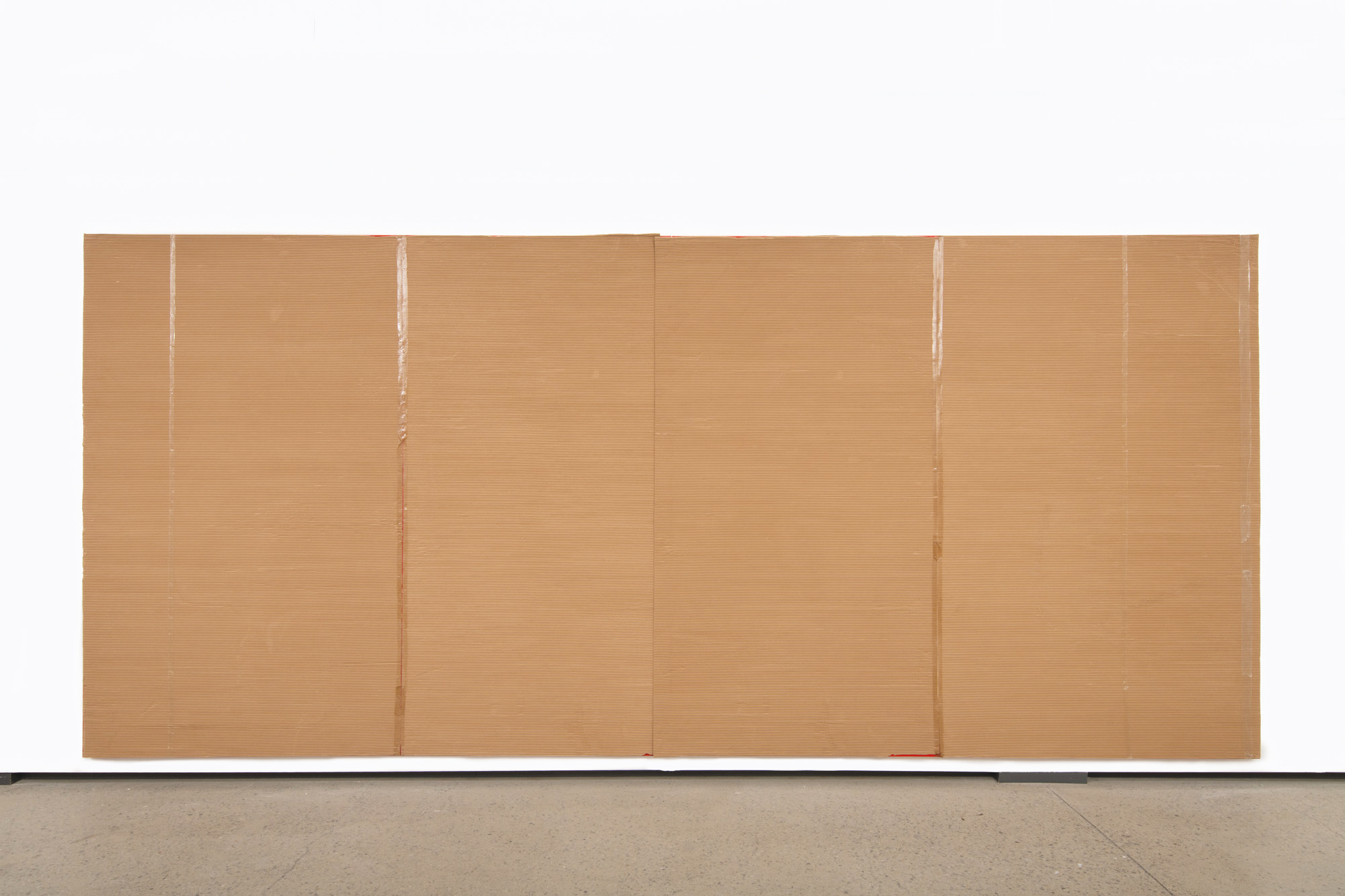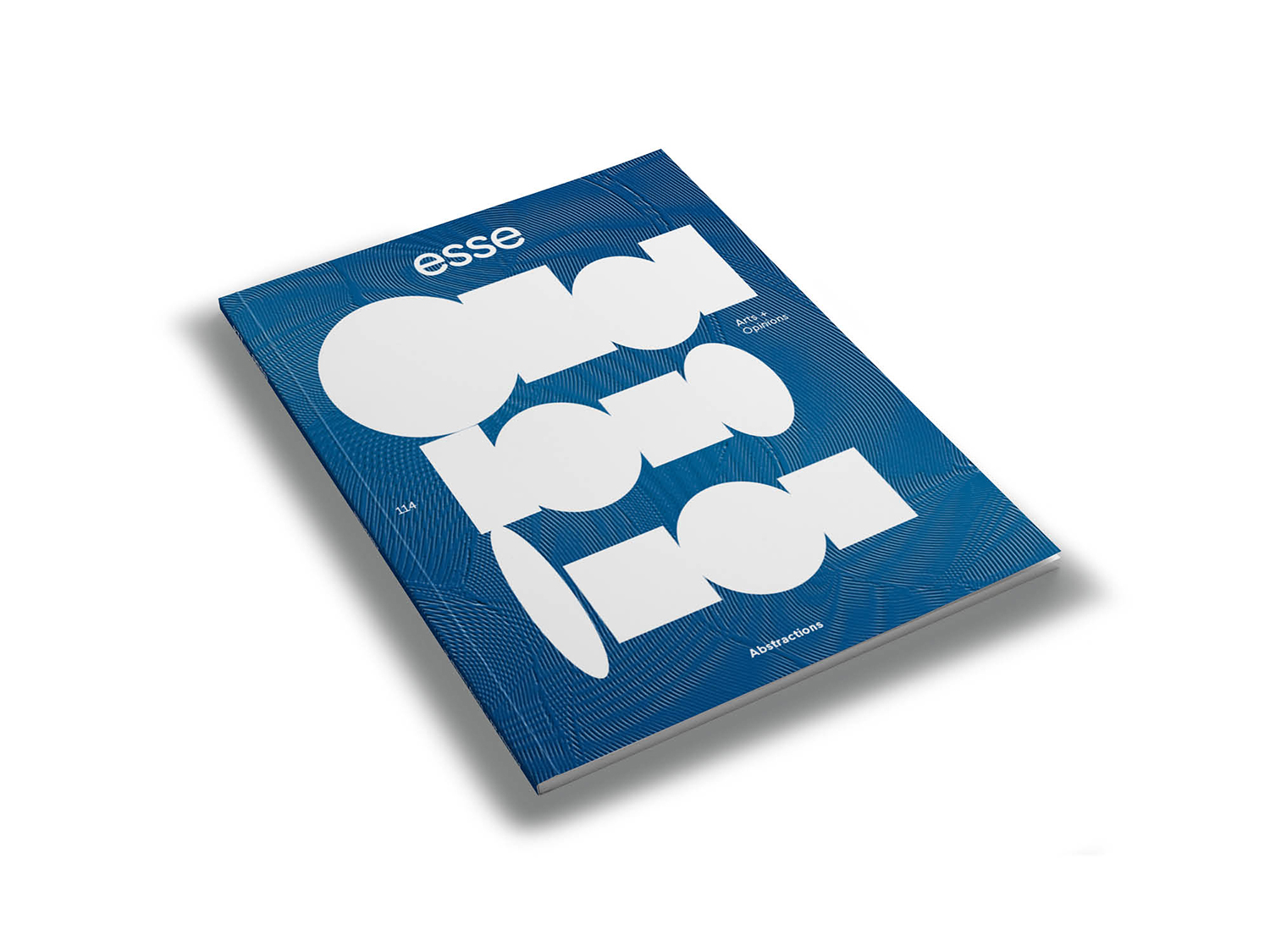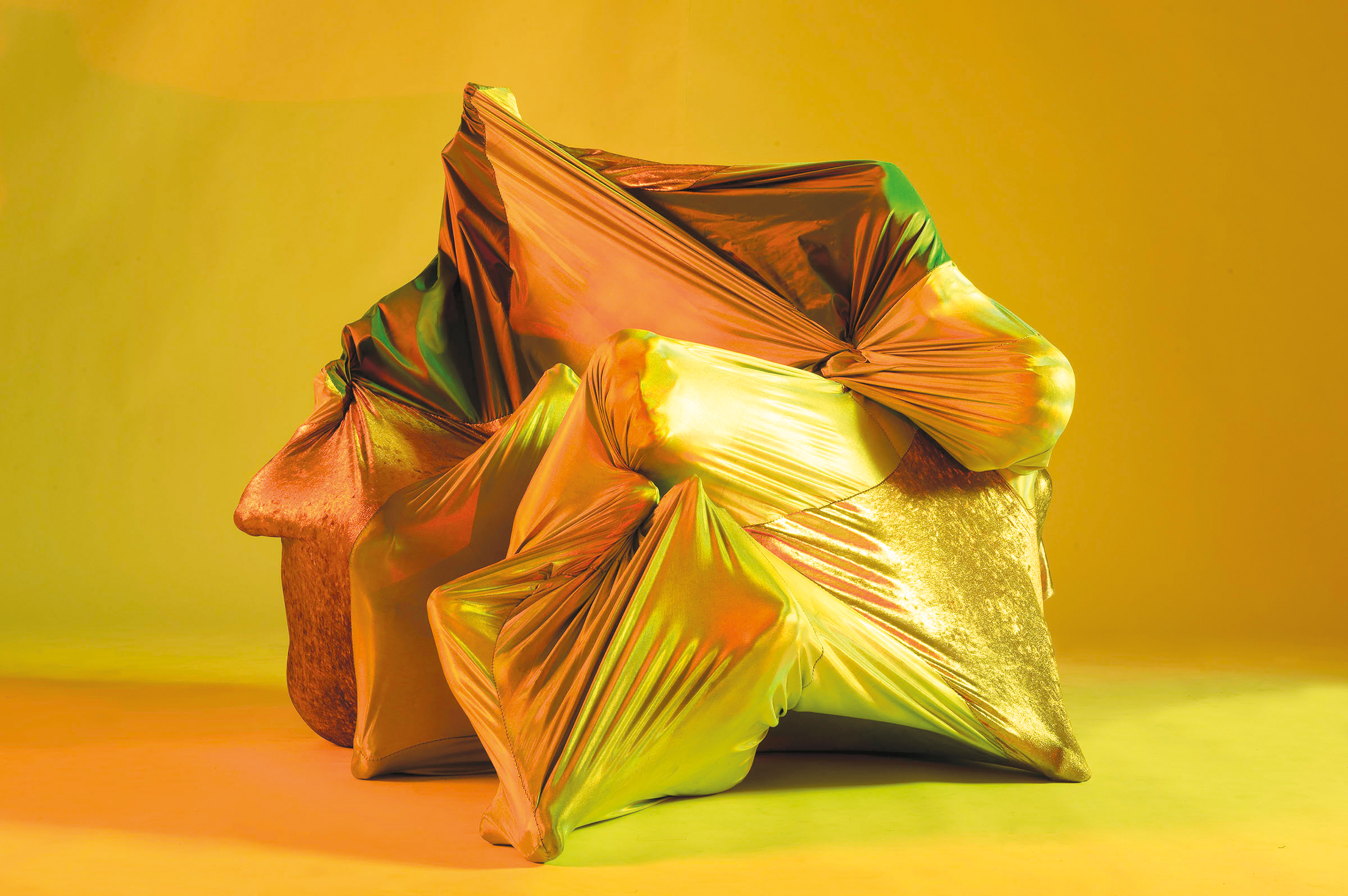
Photo: courtesy of the artist & Blouin Division, Montréal & Toronto
On Abstraction (in Quote Marks)
Counter to this doxa, in this essay, I am interested in works and practices in which some abstraction is manifested … yet not absolutely. Responding to and replicating works by Frank Stella, Agnes Martin, and Barnett Newman, the paintings of Elaine Sturtevant, Evelyn Taocheng Wang, and Tammi Campbell de facto have a non-figurative appearance; however, this formal attribute is in no way derived from a specifically abstract approach, unlike those of their predecessors. The abstract form in these paintings is asserted as a duplicate of a pre-existing work repainted by the artist and not as an original visual creation. Such an approach to late-modernist painting doesn’t really engage in abstraction per se but in a re-examination of it, in a more or less critical way depending on the case and characterized by a consideration of socio-political or cultural factors that are antithetical to the autonomy sought by modernism.



